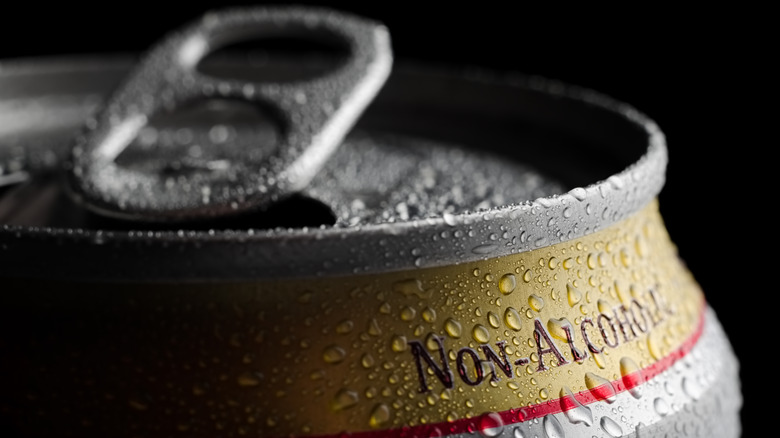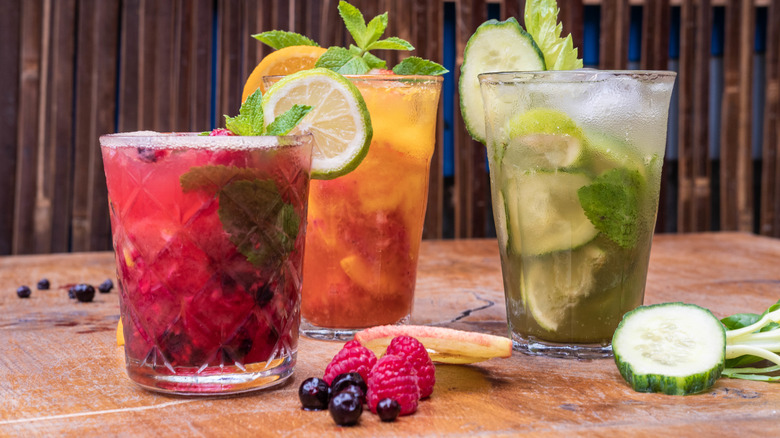New Data Shows 'Dry January' Isn't As Popular As It Once Was
With a new year comes new resolutions, often in the form of cutting out unhealthy habits. Along with developing a more holistic, healthier approach to food and partaking in regular exercise, many people also include resolutions regarding alcohol consumption in their "new year, new me" plans. This is the thrust behind Dry January, a campaign created by Alcohol Change UK. According to the organization's website, the campaign was developed 10 years ago to help people "reset their relationship with alcohol." Since that time, Dry January has garnered a high profile all over the world, and the month-long initiative is frequently lauded for the many benefits it offers.
Today shares a few of these many benefits, including improved sleep quality, decreased disease risk, and boosted energy, all of which occur pretty quickly after cutting out alcohol. Abstaining from alcohol also positively affects cognitive faculties, with many people reporting increased mental acuity as they participate in the movement. Based on these benefits, one might think Dry January's participation will only become more substantial over the years. However, a recent survey shows that participation is not what it used to be.
Lack of Dry January participation might signal a change in drinking habits
A new survey from Morning Consult shows that 2023 Dry January figures have fallen from the previous year. According to their poll, only 15% of people plan on participating by skipping alcohol for the entire month of January. Fewer millennials are participating this year, but their rates of drinking have decreased overall. Consider that 69% of this age group stated they consumed alcohol in 2021, while only 62% said the same in 2022.
Surprisingly, the reason for the lower figures has a lot to do with changes to general drinking habits: It's believed that the pandemic had an effect on 2022 figures, as people had fewer opportunities to go out when faced with surging infection rates. Overall, Morning Consult noted that worries about health and finances were the leading reasons behind their efforts.
For a better perspective on how rates of participation have decreased, consider a 2022 Dry January survey reported by CNN Business. The survey, which was conducted by CGA, found that 35% of Americans above the age of 21 participated in the campaign that year. Many of the people who participated switched to non-alcoholic beverages during the month, including mocktails featuring tasty ingredients but lacking the strong spirits used to make traditional cocktails. Numbers for 2022 showed a steep increase when compared to figures from 2019, during which 21% of people reportedly abstained from alcohol for the entire month.

